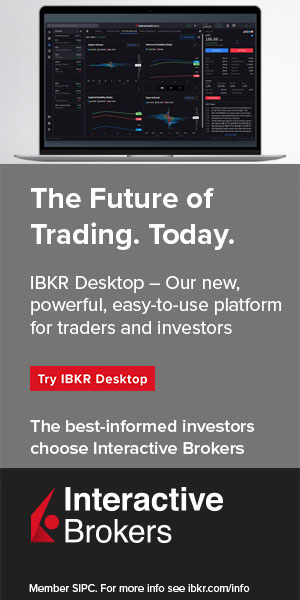Time moves fast in the bitcoin industry. Blink and you’ll certainly miss something. This is my first post on bitcoin for ADVFN, so before getting onto the latest week’s news, I thought it best to give a very brief update of where we are so far.

There has been a steady stream of bad news over the past year – when we saw the bitcoin price decline from its heady highs of $1200 to the current price of $253. Despite this, bitcoin has been making steady progress behind the scenes. Investment in the industry, public awareness, user numbers, merchant adoption, participation from traditional finance institutions, and use-cases – all are on the rise.
In 2013, VC investment in the bitcoin ecosystem totalled $93.8m, with another $314.7m invested in 2014. We’re now only at the end of February and investment in 2015 has already reached $75m.
Microsoft, Dell, Expedia, Overstock, DISH and Newegg are just some of the more major merchants who are now accepting bitcoin as a payment method.
Bitcoin is much more than just a payment network, however, and there is a growing industry from the US to China to the Philippines working round the clock to realise bitcoin’s full potential. International remittance, micropayments, smart contracts, crowdfunding, machine-to-machine payments, blockchain-based securities, and many more applications are already in the works.
At the same time, expectations have to be realistic and many within the industry believe we are entering a period of slower development for bitcoin; some even referring to a “bitcoin winter”. This could be a good thing, allowing the industry to focus on strengthening the technology, shake out unsustainable actors and realise more real-world use-cases without the glare of media attention.
But, as the past few years have shown, with bitcoin, you can never know what’s just around the corner.
There is far too much happening in the bitcoin space in one week to cover properly in one article, so my weekly roundups at ADVFN will be focusing on bitcoin developments relating to finance and trading. If you are interested in reading more about general bitcoin ecosystem news then I would recommend checking out the various weekly roundups out there. In particular, I would recommend well-known bitcoin evangelist Jake Smith’s weekly roundup.
Price news
As further evidence of China being the major driving force behind price action, the Chinese New Year period saw very low trade activity, with prices stuck around the $240 range.
On 27th February things suddenly sprang into action and there was rally from a low of $235.65 to $257.50. That’s an increase of 9% in one day. Things immediately quietened down and we’re now trading steadily around $253.
Seven-day average price: $241.68 End of week market cap: $3.5 billion
(Prices quoted according to Coindesk Bitcoin Price Index)
Bank of England Discussion Paper
The Bank of England released a very interesting report, in which they discussed the potential for “digital currencies” (e.g. bitcoin) to have “profound implications for a financial system whose payments mechanism depends on bank deposits that need to be created through credit”.
This represents yet more positive sounds coming from London on the topic of digital currencies. In global terms, the UK is certainly looking like one of the most friendly jurisdictions for a bitcoin (or any fintech!) startup.
However after reading the document, I think many bitcoin enthusiasts would take affront to the suggestion that bitcoin is ‘economically flawed’. Agreed, bitcoin is one of the most volatile assets out there at the moment, but it is only six years old and highly illiquid. If the currency was more widely adopted, and had a much higher market cap, volatility could be expected to decrease significantly.
The idea of a central bank issued digital currency is an interesting one – does a digital currency in which the quantity and code is centrally controlled make sense? Would it be much different to the system we have now? Perhaps a distributed ledger for all digital pounds in existence would have its benefits, but centralised points of control over the monetary supply would certainly result in security issues at the protocol level and carry its own implications for its use as a store of value.
Crypto Facilities launch bitcoin derivatives exchange
There was much fanfare from the mainstream news outlets regarding the opening of a bitcoin derivatives exchange, Crypto Facilities, by ex-Goldman Sachs, Paribas employees this week. First impression is the platform could still do with a lot of work and has very low liquidity (24hr volume of only around 50BTC at time of writing).
Bitcoin derivatives have actually been around for quite some time. The first exchange to implement derivatives was Bitcoinica (closed in 2012), with bitcoin forwards. The Chinese exchanges OKCoin, 796 and BitVC offer bitcoin futures platforms, and are now clear leaders in terms of volume, having built up significant liquidity due to their early innovation in the field. BitMEX based in Hong Kong is an impressive futures platform, but has discovered that building up liquidity from scratch is a tough task.
TeraExchange reverse merger
Another bitcoin derivatives exchange, TeraExchange, announced a merger this week with MGT Capital Investments, a social and real money gaming site company. The deal is scheduled to be completed on 16th March and will see TeraExchange as the first bitcoin company to have exposure on the NYSE. I’m not too familiar with TeraExchange and they do not have any publicly available statistics on the platform’s trading activity. MGT’s association with gaming sites may not be great for bitcoin’s credibility as a serious financial instrument either.
Poloniex adopt Tether
Poloniex, a US-based cryptocurrency-only exchange, has announced the completion of integration with Tether, a platform that allows fiat currencies such as USD to be pegged to a cryptocurrency on a 1-to-1 ratio (think like a casino chip).
This is an interesting development because it means that purely cryptocurrency exchanges such as Poloniex can now technically support fiat currencies. With Poloniex being US-based, I’ll be very interested to see how this plays out on the regulation side of things.
Some may also question whether Tether’s cryptocurrency tokens are backed with actual assets, but in an effort to reassure investors, Tether claim to undergo regular audits and publish a real-time record of all value held and transferred in and out of our reserve account on their website. Tether also state that tokens are redeemable for cash at any time, “with almost zero conversion and transfer fees”.
JPMorgan looking for bitcoin experts
Wall Street Journal has discovered job postings by banking giant JPMorgan looking for disruptors:
“You care about disruption and have opinions on the future of banking, the payments system, and how to improve upon our existing financial infrastructure. You have an opinion on bitcoin and other cryptocurrencies…”
In addition to recent news such as the NYSE, USAA and BBVA investment in bitcoin company Coinbase, this is further evidence of Wall Street’s increasing interest in the promise of bitcoin.
BitGo achieve real bitcoin insurance
BitGo, one of the hottest companies working on making bitcoin storage more secure, has announced that they have “secured first-of-its-kind insurance coverage for bitcoin theft from the global, A-rated XL Group insurance companies”. Users of BitGo’s paid services will receive theft coverage of up to $250,000. In addition to BitGo’s multi-signature technology, this is a great development for the industry as it should strengthen many companies’ storage security and raise the bar for acceptable storage standards.
Extra reading
Fun Stuff
Full disclosure: Neil Woodfine is an employee of bitcoin exchange OKCoin and is invested in bitcoin. The views expressed above are purely the author’s own and do not represent any organisation. None of the above should be considered as investment advice.


 Hot Features
Hot Features










